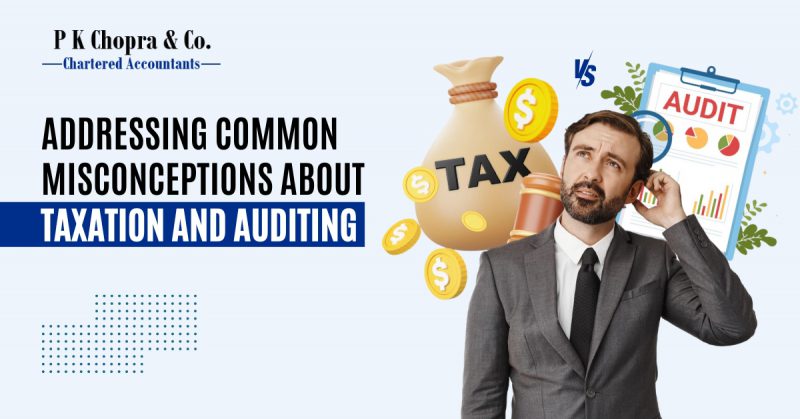Addressing Common Misconceptions about Taxation and Auditing
Taxation and auditing are fundamental components of financial management, yet they are often misunderstood. Misconceptions can lead to non-compliance, financial penalties, and inefficient business practices. In this article, we aim to debunk some prevalent myths surrounding taxation and auditing to help individuals and businesses navigate these areas more effectively.
Myth 1: Only High-Income Earners Get Audited
A common belief is that tax audits target only the wealthy. In reality, the tax authorities employ various methods to select individuals and businesses for audits, regardless of income level. Factors such as discrepancies in tax returns, unusual deductions, or random selection can trigger an audit. Therefore, all taxpayers should maintain accurate records and comply with tax laws to minimize audit risks.
Myth 2: Filing for an Extension Increases Audit Risk
Some taxpayers fear that requesting an extension to file taxes will attract scrutiny. However, the tax authorities do not consider extensions as a factor when selecting returns for audits. Extensions are a legitimate tool for taxpayers needing extra time to prepare accurate returns and do not inherently increase audit likelihood.
Myth 3: Amending a Return Guarantees an Audit
Amending a tax return to correct errors is often seen as a red flag. While it’s true that amended returns may receive additional attention, they do not automatically trigger audits. It’s crucial to file accurate amendments to demonstrate compliance and transparency, which can actually reduce audit risks.
Myth 4: Home Office Deductions Are Red Flags
Many believe that claiming a home office deduction will lead to an audit. However, if the home office deduction is legitimate and properly documented, it should not increase audit risk. The key is to ensure that the home office meets the criteria set by tax laws, such as being used exclusively and regularly for business purposes.
Myth 5: Higher Income Always Results in Higher Tax Rates
There’s a misconception that earning more always leads to paying a higher percentage in taxes. While tax rates are progressive, various deductions, credits, and tax planning strategies can influence the effective tax rate. It’s possible for higher earners to have a lower effective tax rate through legitimate means.
Myth 6: Overpaying Taxes Prevents Audits
Some taxpayers think that overpaying taxes will make them audit-proof. However, overpayment does not influence audit selection and can lead to unnecessary financial strain. It’s essential to pay the correct amount of taxes owed, as accuracy and compliance are what the tax authorities seek.
Myth 7: Tax Audits Are Always Invasive and Lengthy
The prospect of a tax audit often conjures images of exhaustive investigations. In reality, many audits are routine and may only require the submission of additional documentation. The scope and duration of an audit depend on the complexity of the issues involved and the taxpayer’s cooperation.
Myth 8: Small Businesses Are Immune to Audits
Small business owners might assume they are too insignificant to be audited. However, tax authorities audit businesses of all sizes. Small businesses must maintain accurate records and comply with tax laws to avoid potential audits and penalties.
Myth 9: Personal Liability Doesn’t Extend to Business Taxes
Business owners may believe that their personal assets are protected from business tax liabilities. However, in cases of fraud or failure to remit certain taxes, such as payroll taxes, personal liability can extend to business owners, making it crucial to ensure all business taxes are properly managed.
Myth 10: Once a Return Is Processed, You’re Safe from Audits
Some taxpayers think that once their return is processed without issue, they’re in the clear. However, tax authorities can audit returns years after they’ve been filed. It’s important to retain records and remain compliant, as audits can occur well after the initial processing.
Conclusion
Understanding the realities of taxation and auditing is essential for compliance and financial health. By debunking these common myths, individuals and businesses can approach their tax responsibilities with greater confidence and accuracy. Always consult with a qualified tax professional to navigate the complexities of tax laws and auditing processes effectively.

